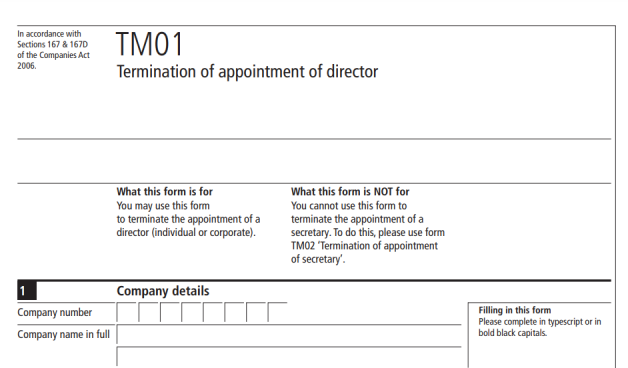When viewed from the company’s perspective the consequences of the death of a director can range from inconsequential to catastrophic. In most cases, though, the amount of disruption to the business will lie somewhere between these extremes. This article examines the most common scenarios when a director dies and gives some practical steps for the immediate aftermath.
In addition, we offer two other guides related to this:
Manage a UK company?
Inform Direct makes it easier for directors to fulfil their responsibilities to maintain company records.
Start now1. Actions to take when a director leaves office whether they resign, retire or die
2. Preparing your private company for the death of a shareholder if the deceased director was also a shareholder.
For now, we will consider two scenarios:
1. In which there are other serving directors still able to direct the company
2. In which the individual who died was the only director.
First scenario - where there are surviving directors
If a director or secretary dies and there are other surviving directors, the situation is somewhat more straightforward than where a sole director has died. In most cases the remaining directors can continue running the company and simply share out the deceased officer’s responsibilities.
An exception to this is if the articles of association require a company secretary and/or minimum number of directors. The recent death may have caused the requirement(s) in the articles to be breached.
A PLC must always have two directors and a properly qualified company secretary. If there is now only one director, arrangements must be made for a new director to be appointed.
However, even if the new status quo is permissible by law and/or the articles, it may simply be that the continuing officers lack skills that the deceased officer had and need to fill the gap. If the post was a critical one then hopefully some key man insurance will have been in place to allow the company to buy in some short-term cover.
Second scenario - when a sole director dies
A private company does not need a company secretary but must have at least one natural person appointed as director. A natural person is a human being, i.e. not a corporate director. If a sole director were to die it would, de facto, trigger a breach of the very rule that there must be at least one director.
In this situation, any shareholder can request that the company secretary convene a shareholders’ meeting to appoint a new director. The same applies in companies with multiple directors who all perish by some collective misfortune.
If, however, the deceased director was also the only shareholder then there are two outcomes:
1. For companies incorporated prior to 2009 with the Table A articles of the 1985 Companies Act, the personal representative of the deceased shareholder must seek a court order for the appointment of a new director. This can be time-consuming and costly.
2. For companies incorporated after 2009 when the 2006 Companies Act came into force, article 17(2) of the model articles of association provides for the personal representatives of the deceased shareholder to appoint a new director of the limited company.
Companies still operating under the old regime with only one director may like to consider revising their articles. This can take advantage of the more flexible arrangements now available to personal representatives. Otherwise, to avoid the possibility of such an inconvenient situation arising, it may be prudent to appoint a second director.
Company secretarial procedures following the death of a director
In all cases, Companies House must be informed by the completion of form TM01 (termination of a company director appointment). Form TM02 should be used for the termination of a company secretary appointment. The company’s register of directors and/or register of secretaries will also need to be updated.
There will also be staff, suppliers (especially the company’s bankers) and customers who need to be notified. If the company lists its directors on its website or company stationery, these should be amended as appropriate.
Certain other company secretarial procedures are necessary on the death of a director to correctly record the event and make adjustments to accommodate it. Here is a list of those tasks.
- A board minute recording the vacation of office and the reason for it
- Update the register of directors
- Update the PSC (People with Significant Control) register if necessary
- Fill in form TM01 or TM02 (for a company secretary) and send it to Companies House within 14 days
- Pay any due fees and expenses to the personal representatives of the deceased director
- Inform HMRC of the cessation of the director’s remuneration
- Check for any share options and other rights the director held that would be triggered by the vacation of office
- Tell the bank, if the director had the authority to sign cheques and authorise payments
- Remove the director’s name from company stationery and website.
This article was originally published in 2014. We update our content frequently for recency and comprehensiveness. The most recent revision to this article was in November 2022.
Inform Direct helps you keep up to date records for directors and shareholders, maintain statutory books and make filings to Companies House.


the PRs mentioned above.
Is it possible for the Executors named in the Will to make this appointment or is the ref to PRs as those Executors named in the grant of probate.
Hi Jonathan,
The term personal representative (or abbreviation PR) describes the person or persons who administers the deceased person’s estate. If there is a will then they are more properly called executors. If there is no will, or they are not named in the will, they are known as administrators. My use of the term PR covers both executors and administrators and either can act.
Henry
well articulated